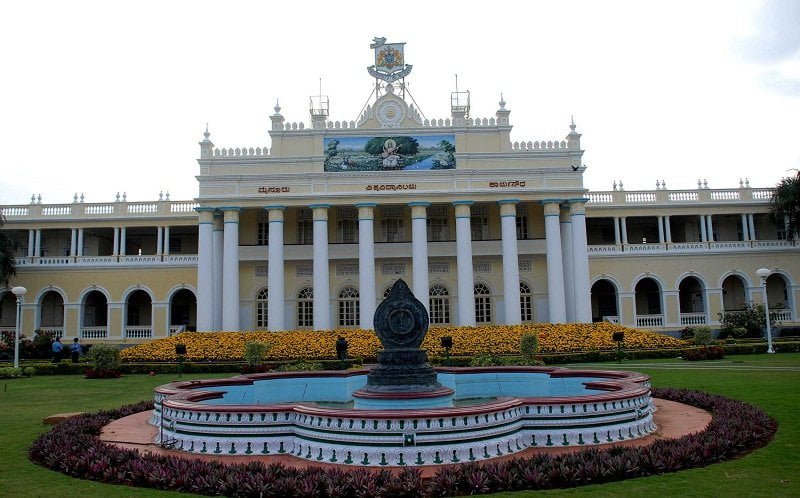
International Webinar on Labour Standards under the Aegis of WTO
Prefatory Note
In an era of unprecedented interconnectedness, where the boundaries of trade extend far beyond geographical demarcations, the question of labor standards resonates as a pivotal axis around which the global economy revolves. The International Webinar on Labour Standards under the Aegis of WTO serves as a beacon, illuminating the multifaceted discourse surrounding this crucial issue. As we convene amidst the backdrop of divergent perspectives and entrenched ideologies, it becomes abundantly clear that the confluence of trade and labor standards is not merely an academic exercise but a pressing imperative demanding nuanced deliberation. The Prefatory Note encapsulates the crux of our deliberations, elucidating the divergent stances, ranging from the imperative of integrating labor standards within the purview of WTO mandates to the apprehensions surrounding the potential repercussions of such integration. At the heart of our discourse lies the recognition of labor standards as not just a matter of policy but a fundamental ethos shaping the contours of global commerce. The delineation of core labor norms, underpinned by principles enshrined in international declarations and conventions, serves as a lodestar guiding our collective journey towards equitable economic progress. Yet, amidst this semblance of consensus lie the fissures of contention, encapsulated in the four cardinal questions that animate our deliberations:
- What are the potential effects of different labor standards on international trade dynamics? Is there a risk of nations with lax labor laws gaining unfair economic advantages, sparking a “race to the bottom”?
- How should countries respond if there is a perceived “race to the bottom”? Should they limit trade to countries with similar labor standards?
- Is it feasible to incorporate labor-related clauses into WTO laws explicitly? Should governments have the authority to utilize trade sanctions to encourage adherence to labor laws?
- Should trade measures be employed to enforce labor standards, or are they merely a pretext for protectionism? Similar concerns are raised regarding technical trade barriers and standards like sanitary and phytosanitary procedures. With minimal explicit rules pertaining to labor standards in WTO agreements, member countries fiercely debate this absence.
As we navigate these labyrinthine corridors of discourse, it becomes evident that the quest for consensus is fraught with complexity. Yet, it is within this crucible of contention that the seeds of progress are sown. By fostering dialogue that transcends ideological schisms and embraces the kaleidoscope of perspectives, we inch closer towards a paradigm wherein trade and labor standards converge harmoniously, propelling us towards a future where prosperity is not merely a privilege but a birthright bestowed upon all denizens of the global village.
General Details
Call for Papers:
We invite paper from the Law students, Research Scholars, advocates and Professors who are expert in Labour law and international trade. Accepted articles will be published in an edited book with an ISBN number, and a subset of outstanding papers will be considered for publication in a peer-reviewed journal.
Certificates:
Digital certificates with QR code verification will be awarded based on active participation and letter of appreciation will be awarded to the Outstanding Presentation.
Submission Guidelines
Submitted abstracts must not exceed 150 words, must include a title, and be accompanied by five keywords and final manuscript must be between 5000-8000 words.
Formatting Guidelines
- Submissions must conform to the Oxford University Standard for Citation of Legal Authorities (OSCOLA), 4th Edition.
- The font shall be in Times New Roman, size 12 with a line spacing of 1.5.
- Footnotes shall be in Times New Roman, size 10 with single line spacing.
- Submissions are accepted only in electronic form.
- Submissions must be made in Word format (.doc)/(.docx)
- The submission must be accompanied by a cover letter stating the title of the manuscript, the name, and details of the author/authors, and the author’s contact details.
- Co-authorship of a maximum of two persons is allowed.
- The proper acknowledgment must be given for such use of literature in the article submitted.
- The submission will be run through anti-plagiarism software and plagiarism in any form will result in rejection of the submission.
Eligibility
Academicians, practitioners, researchers, and students in the field of law are invited by the Editorial Board to submit their research articles.
Date And Time
2024-07-20 @ 06:00 PM
Registration End Date
2024-07-18Location
Event Types
Share With Friends
Organizer
The Department of Studies in Law established in 1973 under the aegis of University of Mysore, stands as a beacon of legal education and research in Southern India. Renowned for its commitment to excellence, it has consistently led the charge in providing advanced legal studies and fostering a culture of scholarly inquiry.
At the heart of its offerings lies the prestigious two-year LL.M. program, comprising four semesters of rigorous academic pursuit. This program boasts a diverse array of optional branches, including Constitutional Law and International Law, catering to the varied interests and aspirations of its students. Under the auspices of the department, research for Ph.D. in Law flourishes, underscoring its dedication to pushing the boundaries of legal scholarship. LL.M. studies at Mysore are distinguished by their emphasis on research, with candidates required to engage in dissertation work, thus ensuring a high degree of training and expertise in legal research.
The department’s commitment to academic excellence is further evidenced by the publication of select student dissertations, showcasing the intellectual rigor and innovation fostered within its walls. Widely recognized for its intensive and high-quality teaching, the Department of Studies in Law attracts students not only from various states across India but also from countries as diverse as Afghanistan, Kenya, Tanzania, and Tibet. Its state-of-the-art facilities, including a well-stocked library, advanced computing resources, and other amenities, ensure an enriching and conducive learning environment for all who pass through its doors.

